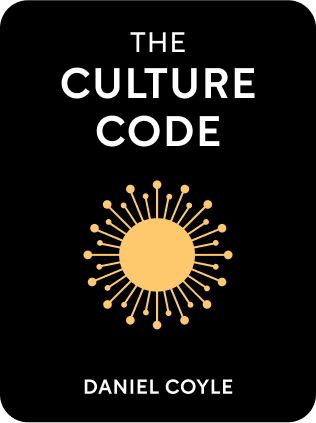

This article is an excerpt from the Shortform book guide to "The Culture Code" by Daniel Coyle. Shortform has the world's best summaries and analyses of books you should be reading.
Like this article? Sign up for a free trial here .
What is The Culture Code book about? What are the key elements of effective work culture, according to its author Daniel Coyle?
In his 2018 book The Culture Code, Daniel Coyle outlines three indispensable elements of effective work culture: safety, vulnerability, and purpose. He breaks down the key attributes and benefits of each concept, warns about the consequences of ignoring them, and gives insight into how to implement them in your workplace.
Keep reading for more about Daniel Coyle’s book The Culture Code: The Secrets of Highly Successful Groups.
The Culture Code: Book Premise
Why do certain organizations become greater than the sum of their parts while other groups fall short? Daniel Coyle’s book The Culture Code aims to answer this question.
Organizations can develop a healthy group culture that promotes interconnection, teamwork, and consistency by focusing on three foundational concepts: safety, vulnerability, and purpose.
Safety: The Cornerstone of Inter-Connectivity
Safety in the workplace lets team members feel like they belong in the group, which makes them more comfortable in their position.
Benefit #1: When team members feel safe, they develop strong chemistry with one another. Team members communicate efficiently, contribute new ideas regularly, and give their input energetically. This allows them to work as a cohesive unit.
Benefit #2: When employees feel valued and supported in the workplace, they are willing to go above and beyond, even if the problem at hand is not technically their responsibility.
Benefit #3: Through a communal sense of belonging, employees develop and maintain interconnectivity even in times of tension. If team members feel safe, they’ll stick together and acknowledge their shared humanity, even in the most volatile of times.
Vulnerability: The Foundation of Teamwork
Vulnerability is the exposure of personal weakness followed by a request for help or support.
Benefit #1: When team members trust one another enough to be vulnerable, they can communicate openly and honestly. By directly asking for help, team members can locate flaws and either solve them before they escalate or plan for them in the future.
Benefit #2: When team members are vulnerable and trust one another, they can act quickly and cooperatively, even in high-pressure situations. They rely on each member of the group to do their job accurately and ask for assistance if necessary.
Benefit #3: Vulnerability often reveals problem areas. Team members with different backgrounds, experiences, and expertise can develop solutions to these issues through feedback sessions and collective insight.
Purpose: The Core of Decision-Making
Purpose answers the question: why do we do what we do?
Benefit #1: Giving team members a sense of purpose changes their perspective on their work. When someone feels as though they are working on something that matters, their entire approach changes, typically increasing the quality of the work.
Benefit #2: People with purpose learn faster. Connecting the process of learning a new skill to the importance of that skill helps team members understand the purpose of their efforts. Consequently, they’ll devote energy and attention to understanding that skill.

———End of Preview———
Like what you just read? Read the rest of the world's best book summary and analysis of Daniel Coyle's "The Culture Code" at Shortform .
Here's what you'll find in our full The Culture Code summary :
- Why safety, vulnerability, and purpose are at the heart of a healthy group culture
- What makes some organizations more successful as a whole
- How one of the largest unsanctioned cease fires came one Christmas Eve during WWI






